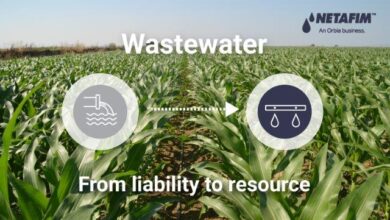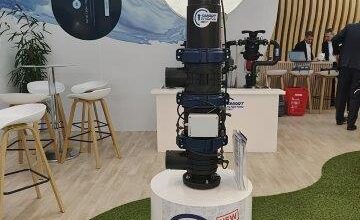“Rice and bananas are two of the staple foods for the world’s population, and every solution that improves the efficiency of their growth has the potential to make a tremendous impact on agriculture and the world,” says Maoz Aviv, Senior Agronomist at NaanDanJain Irrigation. The company which began as NaanDan, an Israeli company connected to Kibbutz Naan, merged with Indian giant Jain Irrigation in 2007, and invests heavily in research.
Rice has traditionally been grown through flooding of rice fields. NaanDanJain’s new approach is to use drip irrigation for rice fields. According to Aviv, this approach has multiple benefits, including water savings, increased harvest, and less harm to the land. “The solution is already commercially sold, and hundreds of acres of rice fields in Cambodia, Vietnam and India are using our new solution and reporting great results,” says Aviv.
Another staple food in the world is the banana, which is among the most widely consumed foods in the world. Bananas are a huge export crop for countries like India, China, Ecuador and the Philippines, and there are countries whose economies depend on them, for example Central American countries like Guatemala and Honduras.
Growing bananas is a complex business, and requires growing tissue cultures. The development of the cultures includes three stages: creation of the tissue culture, first hardening and second hardening (the banana tissue culture industry is led by Jain Irrigation internationally).
“The challenge in banana nursuries is that the work requires a lot of man power to care for the banana plants, sort and remove the less desirable fruits and more,” explains Aviv. This means that workers spend long hours in the nursuries among the banana plants and the irrigation pipes and equipment is both in the way, and can be harmed.
NaanDanJain’s approach to irrigating banana nursuries is to raise the irrigation equipment from the floor, to the ceiling of the greenhouse or net house. In this approach the floor opens up to the easy movement of workers. NaanDanJain calls this approach “clean land.” NaanDanJain has pilots of the system in place in numerous places in Israel, including at Ginosar Agro and Bananot Hachof, in cooperation with Dr. Hanan Ben-Shalom.
The results, according to Maoz Aviv, have exceeded all expectations: “The bananas in our trial group reached maturity 15% faster, the manpower hours needed to invest in each banana tree were reduced by 30% and the production of each banana costs $0.045 rather than $0.062 in the traditional irrigation system. This is a very significant difference, and the implications for the international banana industry are major.”
NaanDanJain is advancing its new irrigation approach to bananas in a number of avenues, including a cooperation with leading growers in the Philippines, and soon South America and Vietnam.
“Our new solutions for irrigation of rice and bananas is proof that NaanDanJain is constantly investing in R&D, and thinking out of the box to bring truly new approaches in irrigation that are changing the way agriculture is done around the world,” concludes Maoz Aviv. “And the novel ‘clean land’ approach we developed for banana nurseries, we are now implementing in nurseries of various types of crops all over the world.”





